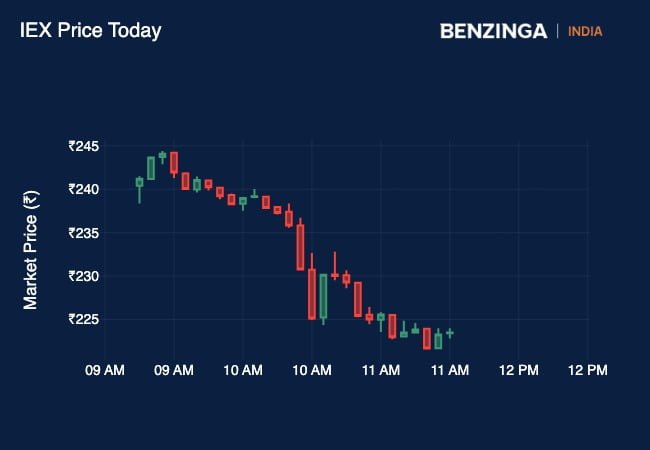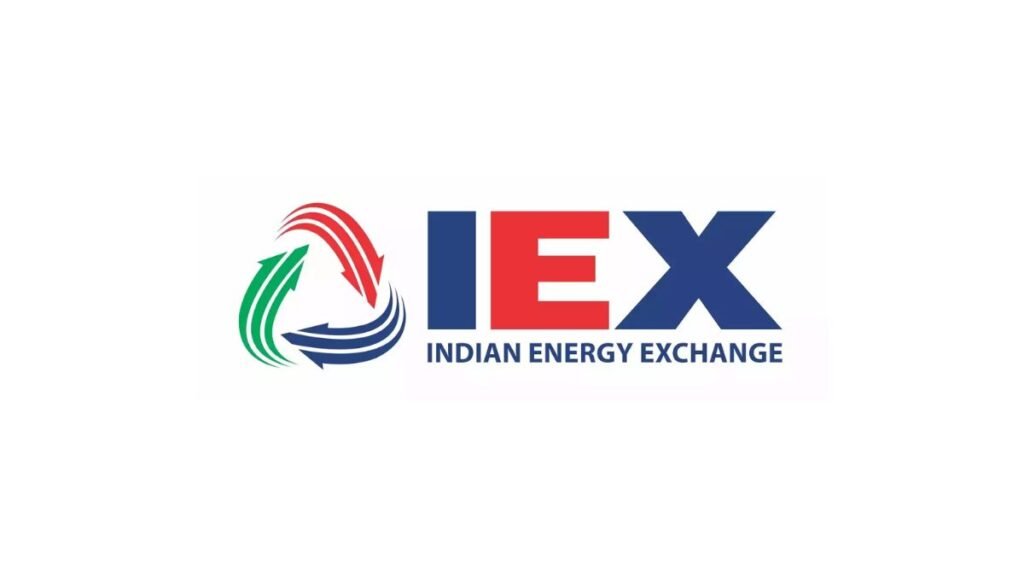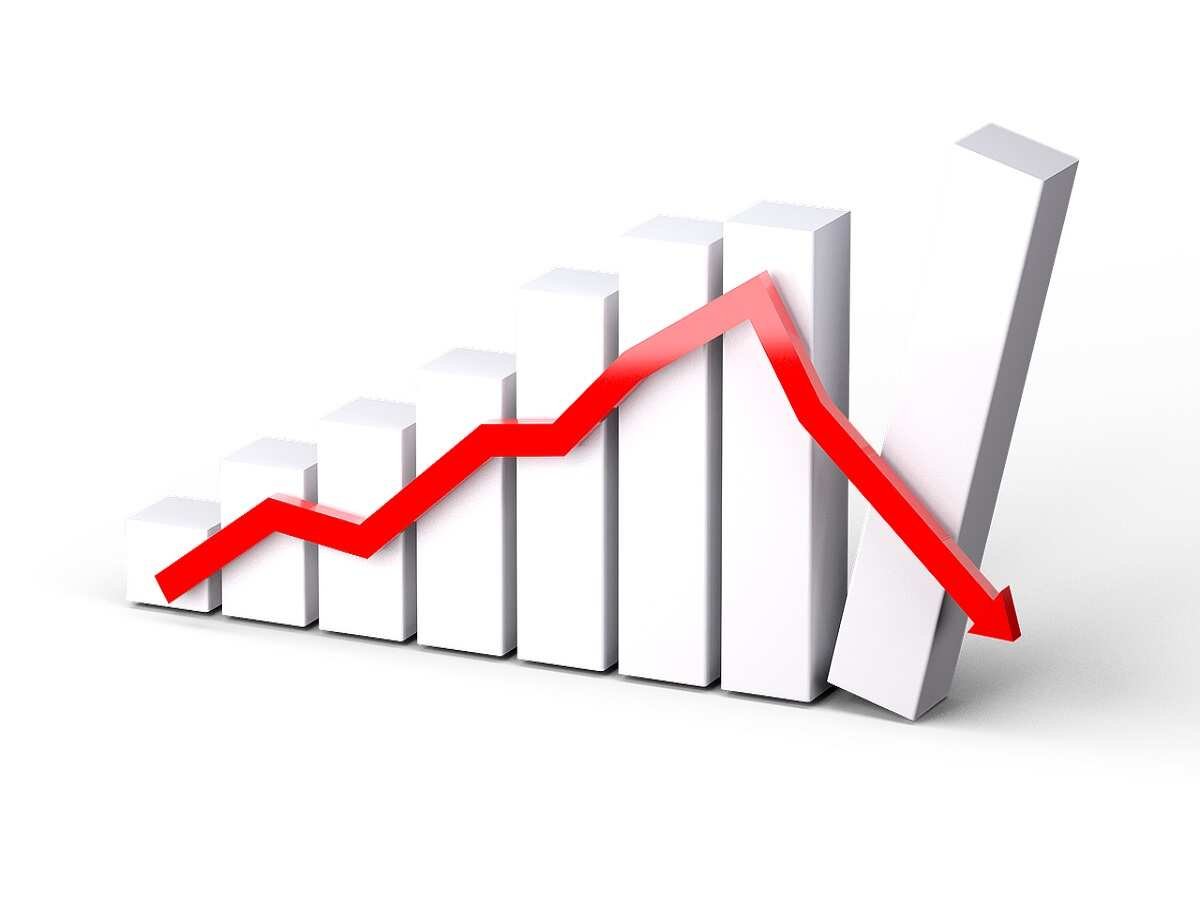The Indian Energy Exchange (IEX) witnessed a sharp decline in its share price, dropping over 8% in a single trading session, which left many investors concerned about the sudden fall. This drop in the IEX share price has raised questions about what triggered this downturn and what it means for the company and its investors.
In this article, we’ll break down the factors that contributed to the IEX share price decline, the broader market implications and what investors should consider moving forward.
What Is IEX and Why Is It Important?
Indian Energy Exchange (IEX) is the leading power trading platform in India, allowing market participants to trade electricity and renewable energy certificates. It plays a crucial role in the country’s energy sector by providing a transparent and efficient mechanism for price discovery and trading of electricity.

As a key player in India’s energy market, IEX’s share price is closely watched by investors, especially those interested in the energy and utilities sector. Therefore, any significant movement in the share price can have broader implications for investor sentiment and the overall market.
Why Did the IEX Share Price Drop Over 8%?
Several factors contributed to the sharp decline in the IEX share price. Let’s explore the key reasons behind this sudden drop:
1. Regulatory Changes Impacting Trading Volumes
- One of the primary reasons behind the drop is the recent regulatory changes announced by the Central Electricity Regulatory Commission (CERC). These changes include tighter restrictions on trading and the imposition of additional charges, which could impact the trading volumes on the IEX platform.
- With the potential reduction in trading activity, there are concerns about a decline in revenue and profitability for IEX, which has made investors cautious.
2. Reduced Spot Market Volumes
- IEX relies heavily on spot market trading volumes for its revenue. Recent reports indicate a dip in the spot trading volumes, which has raised concerns about the company’s growth prospects. A slowdown in trading activity directly affects IEX’s revenue stream, making the stock less attractive to investors in the short term.
- The drop in spot market volumes could be due to factors such as changes in power demand, regulatory interventions and seasonal variations, which have negatively impacted the company’s earnings outlook.
3. Profit-Booking by Investors
- Another contributing factor to the sharp fall could be profit-booking by investors. IEX shares have experienced significant gains over the past year and investors might be looking to lock in profits amid growing uncertainties in the market.
- Such profit-booking can lead to increased selling pressure, which further drives the share price down.
4. Broader Market Sentiment and Volatility
- The recent market volatility and overall bearish sentiment in the equity market have also impacted IEX shares. Concerns about rising inflation, interest rate hikes and global economic uncertainties have made investors cautious, leading to a sell-off in high-growth stocks like IEX.
- This general market weakness has intensified the downward trend, causing IEX shares to suffer more than usual.
What Are Analysts Saying About the IEX Share Price Drop?
Financial analysts have weighed in on the IEX share price decline, with many highlighting the regulatory changes as the primary catalyst for the drop. Some experts believe that the regulatory headwinds could lead to short-term challenges for the company but maintain a positive long-term outlook on the stock due to IEX’s dominant position in the power trading market.

Analysts also suggest that the current dip could present a buying opportunity for long-term investors, as the fundamental business model of IEX remains strong. However, they caution that the stock could experience further volatility in the coming weeks as the market digests the recent regulatory changes and their impact on trading volumes.
Impact on the Power Sector and Investors
The sharp decline in the IEX share price has broader implications for the power sector and investors:
1. Power Sector Dynamics
- The drop in IEX shares reflects concerns about potential disruptions in the power trading market due to regulatory changes. If trading volumes continue to decline, it could impact the overall efficiency and liquidity of the power market, leading to challenges in price discovery and power distribution.
- As the leading energy exchange, any changes in IEX’s performance have a ripple effect on the power trading ecosystem, making it a crucial indicator for stakeholders in the energy sector.
2. Investor Confidence and Market Sentiment
- The sudden drop in the IEX share price has shaken investor confidence, especially among retail investors who were banking on the stock’s growth prospects. The sell-off has prompted some investors to reassess their investment strategies, particularly those who had taken positions in IEX based on its recent strong performance.
- However, experienced investors see this as a natural correction following the stock’s rapid rise over the past year and believe that IEX will eventually stabilize as the market adjusts to the new regulatory environment.
What Should Investors Do Now?
Given the volatility and uncertainty surrounding the IEX share price, investors are left wondering about the best course of action. Here are some key considerations:
1. Short-Term Caution
- Investors with a short-term horizon should exercise caution and closely monitor regulatory developments that could impact IEX’s trading volumes and profitability. The stock may experience further fluctuations in the near term, making it essential to stay informed about market trends and updates.
2. Long-Term Perspective
- For long-term investors, IEX remains a strong player in India’s energy market with a dominant position and a proven business model. While short-term challenges may persist, the company’s growth potential in a rapidly evolving energy market could make it an attractive investment opportunity over time.
3. Diversification
- Given the inherent risks in the market, investors should consider diversifying their portfolios to reduce exposure to sector-specific risks. Holding a mix of stocks across different sectors can help mitigate the impact of volatility in any single investment.
Is This the Right Time to Invest in IEX?
The IEX share price drop has undoubtedly caused concern among investors, but it’s essential to understand the reasons behind the decline and evaluate the company’s long-term prospects. Regulatory challenges and market uncertainties may continue to impact the stock in the short term, but IEX’s strong position in the energy market suggests that it has the potential to bounce back once the situation stabilizes.

As always, investors should conduct thorough research, stay informed about market developments and consult financial advisors before making any investment decisions. For those with a long-term perspective, this could be an opportunity to acquire shares at a lower price, while short-term traders may want to exercise caution until the market sentiment becomes clearer.
The IEX share price decline highlights the importance of staying updated on market trends and being prepared for fluctuations in the financial markets. Investors must weigh both the risks and opportunities before making any investment moves in this dynamic environment.
For Latest News Updates. Click Here.
